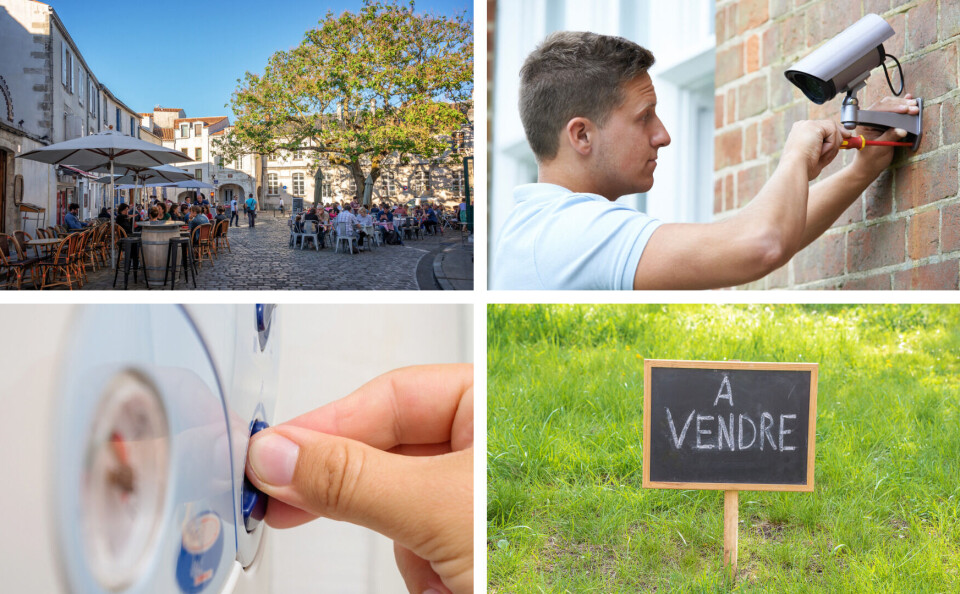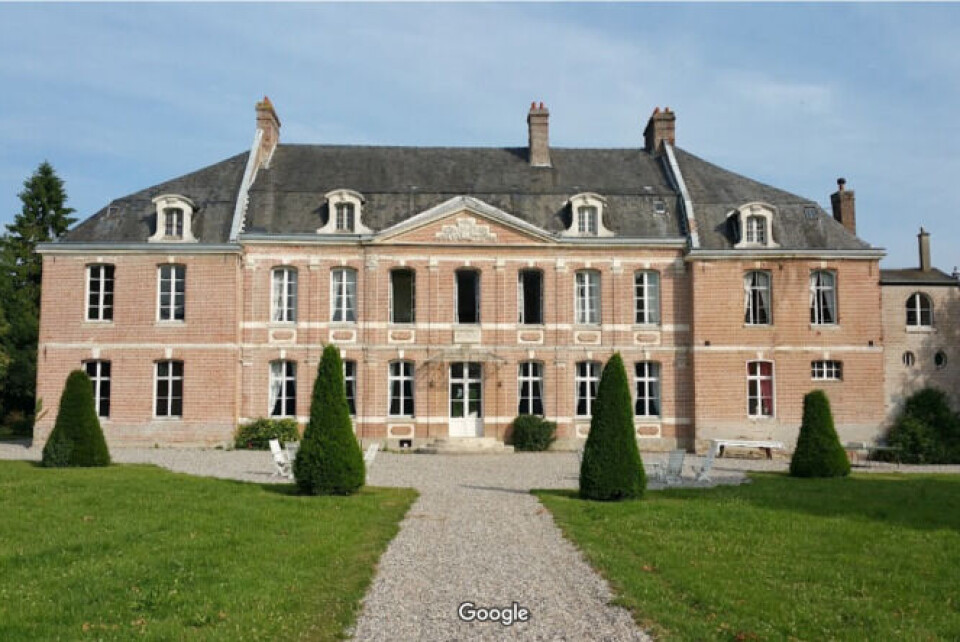-
Burglaries: the French cities and towns most - and least - affected
New official stats have been released with significant geographical differences
-
French police can check your home (and elderly relatives) when you are away
Here is how to sign up for the service, as well as a special check for elderly people. Plus, advice on how to avoid ‘fake police’ scams
-
2024 burglary statistics released: see data per department in France
Official figures show areas with improvements and those that got worse
Home security, oil boilers: Five updates for French property owners
We also look at whether a seller can pull out of a sale when an offer matches their demands and holiday rental measures in west France

Anti-burglary systems (systèmes antivol)
Every year around 250,000 homes are burgled in France, with the summer period seeing the most break-ins as people leave for holidays.
With this in mind, we look at some of the home security options available in France and provide a translation so you know what to ask for in shops.
To get started, the French word for burglary is ‘cambriolage’. This is also a verb – ‘cambrioler’. If you want to say, ‘I have been burgled’, you would say ‘je me suis fait cambrioler’.
Deterrents (dispositifs dissuasifs)
There are many cheap deterrent options available in most DIY shops in France.
These include fake cameras made to look like a surveillance system (fausses caméras).
You can also buy signs (panneaux) or stickers (autocollants) that state that your property is under surveillance or has an alarm system.
Surveillance cameras (caméras de surveillance)
You can buy a CCTV or surveillance camera at most DIY shops or online. These days, the systems usually link up to your phone and can cost anywhere between €30 to €200.
You can ask for a basic model (un modèle entrée de gamme) or a high-end model (un modèle haut de gamme).
Generally, these security cameras can be monitored from a distance, with your phone receiving a notification if someone approaches the house or something moves inside. Sometimes, the angle of the camera can even be adjusted remotely.
Alarm systems (kits d’alarme)
A kit d’alarme, also commonly called an alarme maison, is a much more serious security system.
They are usually set up at home entrance points and trigger an alarm if a secret code is not input correctly within a pre-set timeframe.
These alarm systems usually cost several hundred euros and prices can go up towards €1,000.
Most of the systems include sound and light alarms (avertisseurs sonores et lumineux) and a remote control (télécommande) to control it from a distance.
Fake lights or TVs
Another way to deter burglars is to make it seem like there is someone at home.
There are a range of products such as LED lights that can be programmed to turn on randomly to simulate a TV, or other lights that turn on randomly to make it look like someone has switched on a light.
There is no exact translation for these types of devices but more generally you can describe them as ‘objets connectés permettent de simuler une présence humaine’.
Opération tranquillité vacances
It is possible to sign up online for the free ‘Opération tranquillité vacances’ service under which the gendarmerie or police keep watch over your house in France while you are away.
The service is available all year round across metropolitan France and is free.
You can read more about it in our explainer here: How to get police to check on your home in France when away
La Rochelle targets holiday rentals
The mayor of La Rochelle (Charente-Maritime) in western France is to discuss new measures to cut down on the number of holiday rentals in a meeting with elected officials in September.
Jean-François Fountaine wants to bring in “reinforced” rules as students in the city struggle to find accommodation.
There are around 15,000 students living in the city, which has a total population of around 75,000.
But up to 6,000 properties are used solely as holiday rentals, meaning they can lie empty during low season.
The new measures, which are aimed only at second homes and not main residences, could include demanding owners rent to students for at least nine months of the year or seasonal workers for six months, leaving them with the rest of the year to rent the property to tourists.
Another idea aimed at those with several properties is that if they rent one as a holiday rental then they would be obliged to rent another as a long-term rental.
“La Rochelle is not a seaside resort; we cannot be a town full of closed shutters,” Mr Fountaine said.
These measures could later be extended to other communes such as Nieul-sur-Mer, Lagord, Puilboreau, Dompierre-sur-Mer, Périgny, Aytré, Angoulins, Châtelaillon-Plage and Salles-sur-Mer.
End of oil-fired boilers
It is no longer possible to install a new oil-fired boiler (chaudière au fioul) in any French home after a ban came into effect at the start of July.
This applies to new and non-new build properties and main and second homes. The only exception is for properties that have no other means of heating a home, such as those in very remote mountainous regions which do not have access to gas or electricity.
Around 3.5 million properties in France currently have oil-fired boilers.
Homeowners who do have these boilers will be allowed to keep them until they break down.
Effy, a company specialising in energy renovation work, predicts that around 300,000 oil-fired boilers will be replaced each year in France, beginning this year.
People opting to replace them generally go for pellet stoves, boilers or heat pumps.
The government made an extra €1,000 available in April for people looking to replace oil- or gas-fired boilers as part of its eco-renovation grant schemes.
Read more: Extra €1,000 available in grants to replace a gas boiler in France
Read more: How to apply for a renovation grant for your French home
Property owners have final word on sales
A person selling their property in France is not obliged to sign off on a sale even if the hired estate agent finds a buyer willing to make an offer at the agreed price and conditions, France’s supreme court of appeal, the Cour de cassation, has ruled.
This is the case even if the seller (vendeur) hires the estate agent (agent immobilier) to sell the property and not just search for a buyer (acquéreur).
The situation came about after an estate agent demanded that a property owner sign off on a sale after the agent found a buyer offering the price set out in the agreement between the seller and the estate agent. The seller had though changed their mind and no longer wanted to sell the property.
The signed contract between the seller and the estate agent even stated that the property owner would agree to sell if a buyer was found offering the agreed terms.
But the Cour de cassation judges ruled that the sale could only proceed without the property owner’s final approval if a clause is written into the contract stating that the estate agent has authority to act on their behalf.
As this clause was not in the contract, the judges ruled in favour of the property owner and , as the estate agent should only be paid if a sale takes place, no monies were due to the agent.
High drama at the Château de Yaucourt-Bussus

The Château de Yaucourt-Bussus. Credit: Google Street View
In a property roundup in April we reported on the sale of the 18th-century Château de Yaucourt-Bussus, located in the department of Somme (Hauts-de-France), which fetched €312,000 at auction.
It was auctioned by the Amiens judicial court as the château’s owner, Christian du Perray, had debts to pay.
Mr du Perray and his property are well known in France due to him appearing on French TV show ‘Bienvenue chez nous’, in which guesthouse owners go head to head against each other.
Following the sale at auction, the buyer filed a déclaration de surenchère, a legal process in which you can annul the sale if you consider you have overpaid. The castle’s original price was set at €200,000.
It meant that the chateau was put back up for auction, this time with the date set for July 5 – and this time without the possibility to file a déclaration de surenchère.
But this time Mr du Perray filed a temporary suspension order with the judges to prevent the auction going ahead.
This order is an emergency procedure that allows you to ask a judge to prevent the immediate execution of an administrative decision that you consider illegal. It is not clear which element of the auction he considers illegal but he told Le Figaro that “the first auction should have never happened”.
The court in Amiens will consider this and give a decision on July 13.
If it rules against Mr du Perray, his chateau will be put up for auction for a third time on October 18. But he said that he is confident the property will remain in his possession, saying, “things will work out”.
Related articles
The areas of France with the best and worst house insulation
French property watch: High class living in Gers
























